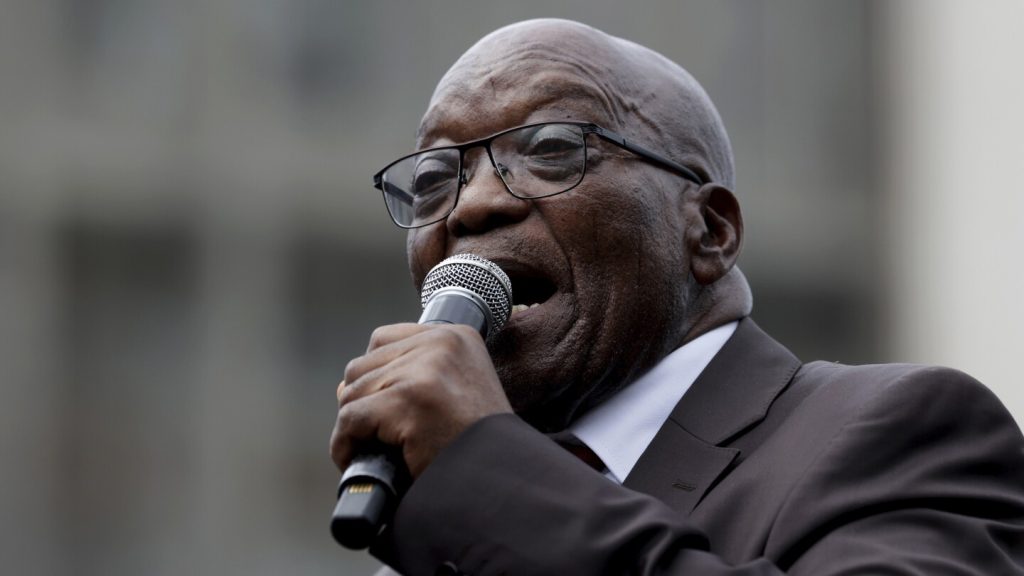Zuma’s disqualification from running in the upcoming elections comes after he was sentenced to 15 months in prison in 2021 for defying a court order related to corruption allegations during his presidency. Despite being granted medical parole, South Africa’s Constitution prohibits individuals convicted and sentenced to more than 12 months in prison from holding public office. Zuma has until April 2 to appeal the Independent Electoral Commission’s decision, but in the meantime, he has become the face of a new political party called the uMkhonto weSizwe Party, which has positioned itself as a potential contender in the upcoming elections.
The uMkhonto weSizwe Party, named after the former military wing of the ANC, has gained attention due to Zuma’s involvement. He has denounced the ruling African National Congress (ANC) and is now leading the new party, featuring prominently on election posters and as the main speaker at rallies. This has created tensions between the MK Party and the ANC, with legal battles over the party’s registration and use of the ANC’s name and logo. Despite these challenges, the MK Party has scored a legal victory against the ANC’s attempts to deregister the party and prevent it from participating in the elections.
Zuma’s departure from the ANC and entry into a new political party has been a significant development ahead of the elections in South Africa. His presence in the MK Party has energized supporters who may be disillusioned with the ANC, providing an alternative for voters in the upcoming polls. The ANC’s efforts to challenge the MK Party’s legitimacy and branding reflect the political tensions surrounding Zuma’s involvement and the potential impact of the new party on the election landscape.
Despite facing legal battles and disqualification from running in the elections, Zuma remains a prominent figure in South African politics. His history as a former president and his involvement in corruption allegations have heightened public interest in his actions, including his decision to form a new political party. The upcoming elections will provide a platform for Zuma and the MK Party to challenge the dominance of the ANC and potentially reshape the country’s political landscape.
The involvement of Zuma in the uMkhonto weSizwe Party and his disqualification from running in the elections have generated intense public debate and interest in South Africa. The emergence of a new political party led by a former president signals a potential shift in the country’s political dynamics and highlights the ongoing struggles within the ruling ANC. As Zuma continues to navigate legal challenges and political conflicts, the outcome of the upcoming elections will be closely watched to assess the impact of his new party on the traditional political establishment in South Africa.
Overall, the decision to bar Zuma from running in the elections and his subsequent involvement in a new political party have set the stage for a contentious and closely watched electoral process in South Africa. The legal battles, political tensions, and public interest surrounding Zuma’s actions reflect the complex dynamics of the country’s political landscape and the ongoing struggles within the ruling party. As the MK Party prepares to compete in the elections, the role of Zuma and his supporters will be a key factor in shaping the future direction of South African politics.


